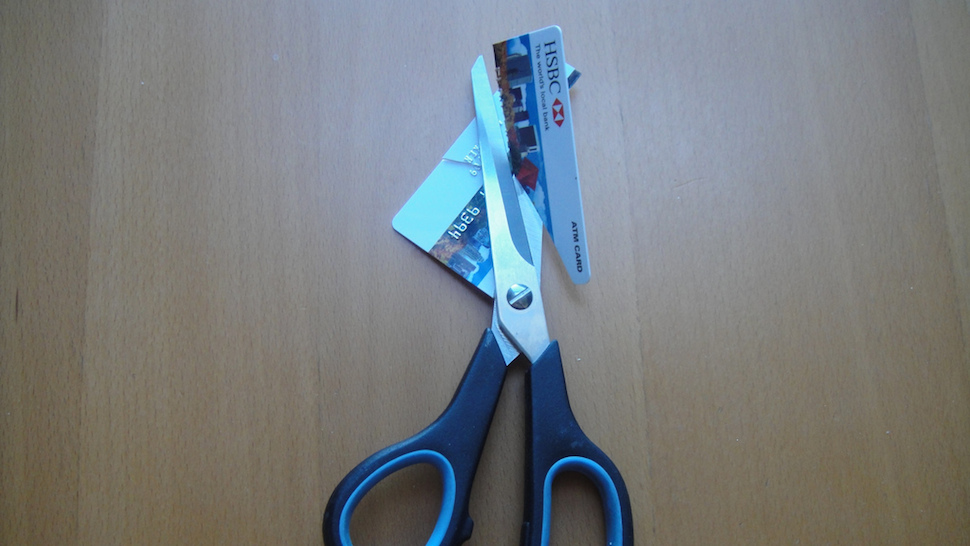Managing money is a big source of stress. It can tear relationships apart and send us spiralling into depression. It’s no wonder many of us stick our heads in the sand and hope for the best. Unfortunately, that’s no way to deal with the problem, and nothing gets better if you ignore it. Here’s how to get past those emotional blocks and take control of your money.
Photos by MS Planet (Shutterstock), Consumerist.com, Chase Elliott Clark, American Advisors Group and Konstantin Sutyagin (Shutterstock).
You probably know all the right steps: You need to set a budget and pay down your debt. You also need to save for the future and build an emergency fund in case something happens. It’s all good advice, but it’s all so daunting — so much so that we often say we’ll figure it out “later”, knowing “later” will never come. In this post, instead of looking at the steps, we’ll talk about how to get started. We can’t give you free money, but we can help you get over the mental roadblocks that keep you from whipping your finances into shape.
Write Down Your Financial Goals

Part of the problem with managing money is that it often feels like a huge, time-consuming, energy-draining affair. It certainly can be, but don’t give up before you get started. The first step is to do something — anything — that gets you up and running. Start with something important but also relatively painless: Write down your financial goals.
Like any goals, they should be discrete, actionable steps you can accomplish. You don’t want to say “be financially secure,” as it’s too vague and broad. Instead, try “pay off my credit cards.” Similarly, “save $X for a down payment on a home” is a good goal, as is “Pay off my HELP debt”. These are single tasks that will take time and effort, but you can plan each out individually. Just writing each of them down is empowering, and it gives you a to-do list you can start to flesh out.
If your list of goals seems long, that’s OK — don’t get discouraged, you’ll tackle each one, one at a time. Remember, you’re in it for the long game.
Focus On Your Goals, Not The Road There

Keep your eyes on the prize. You don’t want to get bogged down in how long it will take to get to your goals, or the steps required. This journey takes time, and you’ll want to focus on your individual accomplishments as they come. It may feel bad when you do the maths and see it will take five years to pay off your credit cards, but don’t think about that five years. Think instead about how good it will feel to have them all paid off and to be debt-free. Then think about where the money you spent paying them down could really go — whether it’s to an emergency fund or saving for retirement, or just on a dream holiday — whatever your next big financial goal is.
If you become mired in the details, you’ll get depressed. All you’ll see is you losing something when you’re really gaining something much more valuable: buying power, financial standing, and most importantly, financial freedom. In short, it might suck to sit down and trim your spending to make a budget work, but once your have a budget that works, you’ll never have to worry about overdraft fees, low bank accounts, or living on credit — all things that cause stress — ever again.
Make A Plan For Each Goal

Financial troubles often hit us at the same time. Don’t double-up on the stress and tackle your goals at once, too. You’ll just get exhausted. Give each one of your goals a specific plan and timeline, and, if possible, find a tool that will help you with it.
Start with the fundamental tasks on your list. For example, if “build a sustainable budget” is on your list, the first thing you need to do is track your spending to see where your money is going. Once you have a handle on what your regular, necessary expenses are, you can review your other, variable expenses and identify the places you might be able to save money. If you want to pay down your credit cards, that’s even easier. All you need are your current balances, minimum payments, and interest rates. Plug them all into a snowball calculator like this one and it will make your plan — all you have to do is follow up.
The important thing is that you put your money to work for your goals, instead of twisting your goals to meet the money you have on-hand. Bottom line: find a great tool to help you get on top of the goal you’re working towards. They will often take the hassle out of planning, and even streamline the process for you, which also takes the stress out of it. It’s nice to find the right tool or app and say “well, that was easier than I thought it would be.”
Get Help (And Support) When You Need It

The assumption that you have to manage your money alone is a big cause of depression and frustration. In some cases, that even means alone from spouses and families. Even if the only finances you’re straightening up are yours, you don’t have to do it on your own. If you need help figuring things out, by all means get it.
However you get help, make sure that when you’re stuck, you get it. Talk to your spouse or family about your financial goals to make sure you’re on the same page. If you’re struggling with a budget, have someone else look at it and offer their thoughts. If all else fails, talk to a professional. Many are available through state consymer affairs departments, universities, community centres and churches for free or for minimal cost. You don’t have to feel like you’re hung out to dry.
It’s easy to say “just make a plan and do it” when you’re not the one who’s terrified to look at their bank account, credit card balances, and bills. I know the feeling — sometimes you’re working so hard just to make ends meet that it feels like trying to get blood from a stone. “I don’t have any money anyway, so why bother?” Take it from me: Once you do — even once you get started — you’ll feel much better about the process. Remember, getting started is everything.
Lifehacker’s weekly Loaded column looks at better ways to manage (and stop worrying about) your money.

Comments